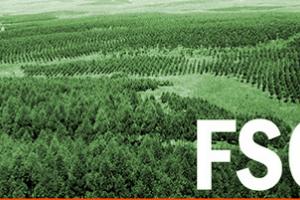It seems like a slap in the face. The oil palm agro-industry has chosen precisely 16 October, World Food Sovereignty Day, and the Latin American country most hit by oil palm – Colombia – to hold the first Latin American meeting of the “Roundtable on Sustainable Palm Oil.”
Colombia
Bulletin articles
26 October 2008
Other information
24 July 2008
Since the beginning of the decade, all the areas of expansion of oil palm plantations have coincided geographically with areas of paramilitary presence and expansion, to the extent that some of the new plantations being developed have been financed as farming projects for the same demobilised paramilitary from the AUC (Autodefensas Unidas de Colombia – United Self-Defence Force of Colombia) who had previously made incursions into these very areas.
Bulletin articles
28 April 2008
The municipality of Puerto Wilches, located in the Central Zone defined by the Agricultural Plan for the Implementation of the Biodiesel Programme, is home to much of the agricultural activity in the department (province) of Santander. According to the Agricultural Plan, there are roughly 21,000 hectares of oil palm plantations in the municipality, representing 91.7% of the department’s palm oil output.
Bulletin articles
2 February 2008
On 28 March 2006, in the midst of strong pressure from the Government and the timber industry, Law 1021 was adopted in Colombia, better known as the “Forestry Law” (see WRM Bulletin No. 105), enabling major timber investors to have easy and privileged access to the country’s forests, thus compromising the future of these forests, both public and those belonging to Indigenous and Afro-Colombian communities.
Bulletin articles
8 November 2007
The disappearance of the forest would seem to be the premise in the various political instruments created in Colombia for the forestry sector. However, most of them euphemistically set out objectives for conservation and protection.
Other information
17 October 2007
Between 2001 and 2005, plywood panels manufactured by Pizano S.A., one of the largest timber companies in Colombia, could be purchased in the U.S. The panel was manufactured in part using timber from one of the plantations certified by Forest Stewardship Council (FSC), and in part from the natural forests in northeast Colombia, forests in which guerrilla organizations, paramilitary groups and the army fight for control of the territory and its natural resources. Consequently, these plywood panels were stained with blood.
Bulletin articles
18 August 2007
As member of a group of international observers, invited by the Justice and Peace organization, we had the opportunity to visit an area in Colombia (Curvaradó) where ten years ago the local communities suffered from a violent eviction process and are now returning to their territories.
Other information
24 March 2007
The Peoples’ Permanent Tribunal – Colombian Chapter met on 26 and 27 February 2007 in Lower Atrato to bring to trial transnational companies focusing on the issue of biodiversity and exploitation of natural resources in Colombia. The participating communities and social organizations – including environmental organizations – accused Smurfit Kapa Carton de Colombia “of violating human, environmental, social and cultural rights.
Bulletin articles
26 February 2007
On 15 December 2006, the Colombian government made public its decision to reinitiate oil exploration activities in the Siriri and Catleya Blocks located in the Departments of Arauca, Santander, North of Santander and Boyacá, in the northwest of the country, in U’wa territory.
Bulletin articles
29 December 2006
A few days ago, the 12th session of the Conference of the Parties on Climate Change – COP 12 – came to an end. The closing session confirmed the scant will of governments and parties in seeking real solutions to the climate crisis. However what did stand out was interest in promoting the use of strategies invented to solve the climate problem based on market mechanisms. Among these, the group of tree plantation projects as greenhouse gas sinks were the most notorious.
Other information
30 November 2006
The Western world, and in particular the countries of the North, gave in to addiction to fossil fuels. This path has led to something that today nobody can doubt: climate change. Many solutions have been put forth to face it, but most of them let humanity’s race towards suicide continue as vigorously as before.
1 September 2006
Press Release - September 1, 2006

